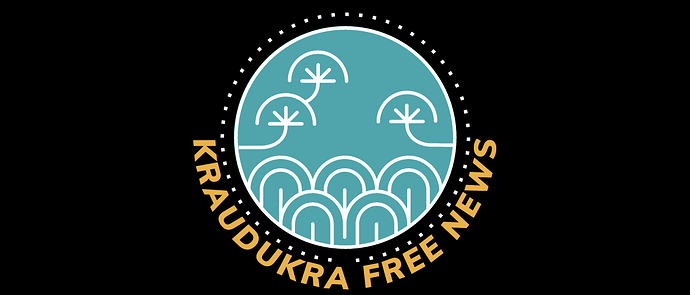Krauanagaz Pushes Back Amid Rising Tensions with Qaweritoyu Leadership
Alkantara, Krauanagaz— The Krauanagazan government has issued a sharp rebuke to recent comments made by top officials in Qaweritoyu, calling them “needlessly inflammatory” and “unbecoming of responsible diplomatic partners,” as tensions between the two nations continue to escalate over allegations of regional destabilization and political posturing.
The dispute flared anew after Prime Minister Walton of Qaweritoyu accused Krauanagaz of “putting words in our mouths” and behaving as though “we’re five.” Speaking at a press event earlier this week, Walton dismissed ongoing criticisms from Krauanagaz as baseless and accused its leadership of fabricating narratives to stoke regional division.
“We would do better to take our duty to our countries seriously,” he said. “The true people rewriting reality here are those of you making accusations and causing problems where they do not exist.”
Adding further fuel to the diplomatic fire, newly appointed Deputy Prime Minister Christina Rivera made headlines when she suggested Qaweritoyu would not hesitate to impose retaliatory economic measures on Krauanagaz. When asked whether her government would consider “punishing” Krauanagaz, she replied bluntly: “Yes, we would… high tariffs, taxes on their goods and services, or outright cancel them—whatever it takes to make them shut up.”
In response, the Krauanagazan State Department released a formal statement Friday morning condemning the remarks as “reckless rhetoric that undermines the spirit of regional cooperation and mutual respect.”
“Comments such as these, particularly from the highest echelons of government, are not only deeply disappointing, but wholly counterproductive to the peaceful dialogue we have consistently sought,” said Secretary of State Darius Korin. “We are not interested in playground diplomacy. We expect— at the very least— a basic standard of discourse and accountability.”
The State Department stressed that Krauanagaz has not fabricated any claims, and pointed to a long history of security and intelligence cooperation with other various regional states as evidence of its credibility.
“We will not be deterred by threats of ‘cancellation,’ nor will we respond in kind,” Korin added. “However, Krauanagaz reserves the right to defend its interests against any economic aggression or political sabotage— overt or covert.”
While no formal trade retaliation has yet occurred, both nations are now reportedly reassessing their bilateral trade agreements. Krauanagaz exports a significant amount of raw materials, including foodstuffs, and high-tech manufacturing components to Qaweritoyu, while importing electronics, pharmaceuticals, and maritime equipment.
Analysts warn that a tariff war or breakdown in relations could be costly for both countries— particularly at a time when Cordilian economic resilience is already being tested by the recent public health crisis and regional instability in Okhoa and Mitallduk.
Inside Krauanagaz, reactions have ranged from bemused to indignant. Opposition leaders in the Lórnáida Sentro (LS) have called the Qaweritoyu remarks “juvenile,” while some conservative lawmakers have urged the government to impose countermeasures immediately.
“The Deputy Prime Minister of Qaweritoyu essentially called for an economic war against a regional partner,” said conservative Lupriari Ilivan Kres. “We cannot and must not let that go unanswered.”
Others, however, have urged calm. “The rhetoric from Qaweritoyu is provocative, yes, but it is also clearly reactive,” said Riala Marren, a political commentator with the Tatallap Herald. “We’re witnessing a power transition on their end, and tensions with Krauanagaz are becoming political currency.”
With the tone between the two nations hardening, and mutual trust fraying, observers say it’s unclear where the so-called “tiff” will lead next. Calls for mediation from several neutral nations have been floated behind the scenes, but so far, neither side appears eager to de-escalate.
“The region is already fragile,” said Marren. “The last thing Cordilia needs is another war of words— especially one that could spiral into deeper economic pain.”
